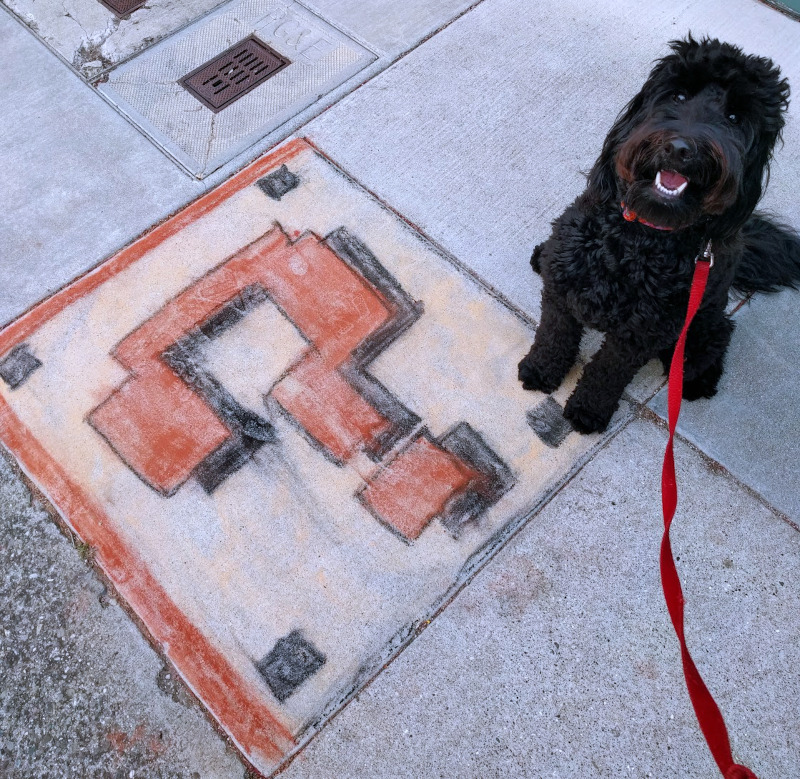Unleashing the Truth:
Dog Training Euphemisms Exposed

Understanding each other means we need a mutual understanding of common terms.
Every subculture has its own language and vocabulary, and the world of dogs and dog training is no exception. Whether you are a new dog owner or an experienced one delving deeper into the intricacies of dog training, you'll likely encounter unfamiliar or puzzling terms and phrases. While some words have clear and widely accepted definitions, others are deliberately couched in euphemisms to obscure their true meaning.
According to the Oxford English Dictionary, a euphemism is a mild or indirect word or expression substituted for one considered too harsh or blunt when referring to something unpleasant. In dog training, euphemisms are used to soften the impact of certain training techniques or to portray outdated methods as more humane.
In the past, dog training relied heavily on dominance-based methods, drawing inspiration from the notion of man's dominion over all animals. Terms like "alpha" and "pack leader" were and are still commonly used to describe the owner's role in establishing control over their dog. However, modern research in canine behavior has shed new light on this concept, revealing that dogs do not form strict hierarchies. Using such terms is no longer scientifically accurate.
Renowned wolf researcher Dr. L. David Mech has discredited the concept of "alpha" and "beta" wolves, explaining that they were based on observations of unrelated captive wolves forced to live together, not on observations of wild wolf packs. In reality, wolves and dogs are social animals who thrive on positive interactions and cooperation, not dominance and control. Watch this video as Dr. Mech debunks this common misconception.
Over the last four decades, there has been an explosion of research into how dogs think and learn, leading to significant advancements in training methodologies. Positive reinforcement and science-based training have gained popularity as a more effective and ethical alternative to dominance-based techniques.
Positive reinforcement focuses on rewarding desired behaviors with treats, praise, or other rewards while redirecting unwanted behaviors. This approach encourages dogs to repeat behaviors that lead to positive outcomes, creating a strong bond between owner and pet based on trust and cooperation. Using positive reinforcement, we can motivate dogs to make good choices and reinforce the behaviors we want.
Despite the progress in dog training methods, some trainers still cling to outdated practices. They understand that modern dog owners seek a humane approach, which has led old-fashioned trainers to rebrand and "euphemize" forceful and painful training techniques. Such softening of terms can mislead owners into believing that these methods are gentler than they actually are.
Using euphemized language in dog training not only obscures the true nature of the techniques but can also perpetuate harmful and sometimes abusive treatment in the name of obedience. Dogs subjected to harsh training may experience fear, anxiety, and stress, leading to behavioral issues and a strained owner-pet relationship.
- "Balanced Trainer": A trainer who combines positive reinforcement with aversive methods like punishment, pain, and fear.
- "Pack Leader": Using punishment to force compliance.
- "Training Collar": Often a reference to a choke or prong collar.
- "E-Collar" or "Stim" or "Static Correction": A shock collar that delivers electronic stimulation.
- "Slip Lead": A leash and collar combination that tightens when pulled, meaning a choke collar.
- "Invisible Fence": A pet containment system that uses a buried wire or wireless signal to create a boundary around an area and deliver an electrical shock to a dog’s neck when the boundary is crossed.
- "Gentle Leader": Brand name for a head halter that controls the dog's head movements.
- "Herm Sprenger": Brand name for a prong collar.
- "Correction": A euphemism for punishment in training.
- "Alpha Roll": Forcing a dog onto its back to assert dominance.
- "Leash Pop": A quick, forceful jerk on the leash as a correction.
- "Pressure and Release": Applying pressure or discomfort to prompt a desired behavior. Once the dog performs the behavior, the pressure is released.
- "Control": Using force or punishment to suppress behavior.
- "Teach Respect": Establish dominance over your dog and make them fearful of you.
- "Calm, Assertive Energy": When you get paid a lot of money to abuse dogs and mislead the public.
Understanding the terminology and language used in dog training is crucial for every dog owner. Embracing positive reinforcement and science-based methods ensures effective training and promotes a loving and trusting bond between you and your dog.
Be cautious of euphemized language that might obscure outdated and potentially harmful training techniques. By choosing modern, positive methods, we can create a compassionate and progressive approach to dog training, benefiting both ends of the leash.

